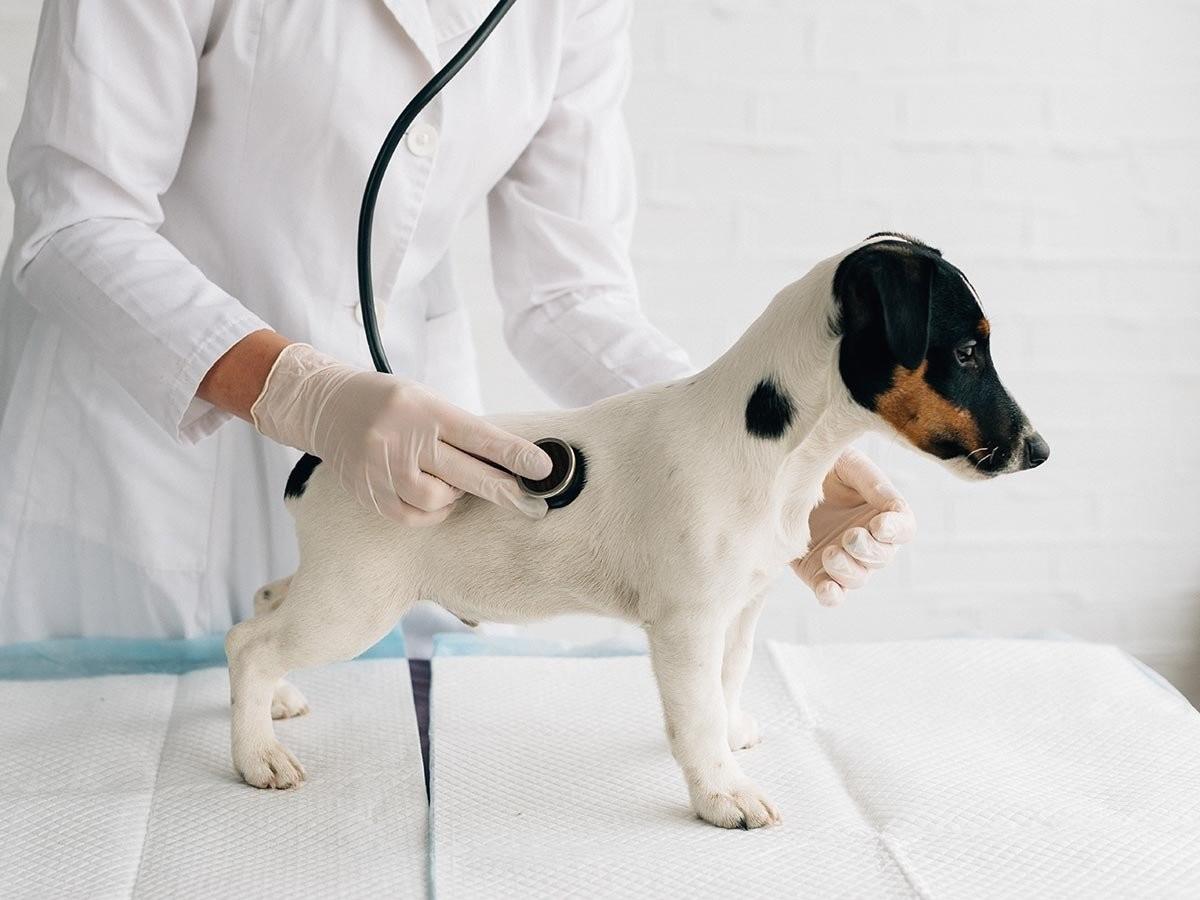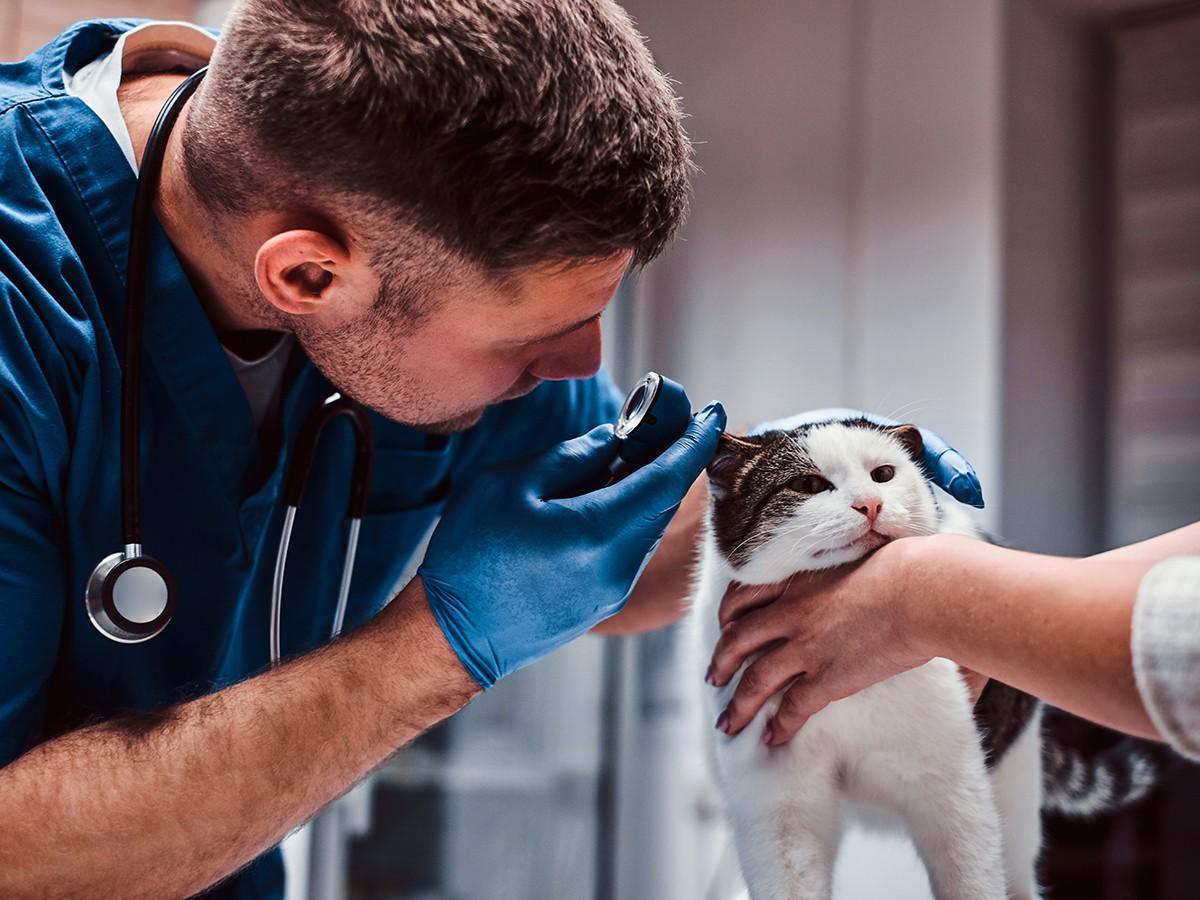Heartworm disease, a serious and potentially life-threatening condition affecting both dogs and cats, is a major concern for pet owners.1 Prevention is key, but what happens if your furry companion still contracts this parasitic infection?
Understanding the nuances of pet insurance coverage when it comes to heartworm treatment can be crucial in navigating the financial burden of unexpected veterinary expenses. This article aims to shed light on the question: Does pet insurance cover heartworms? We'll delve into the factors that influence coverage, discuss the importance of prevention, and explore the various options available to protect your pet's health.
Let us get straight to the most basic question here –
What are Heartworms?

Heartworm is a parasitic nematode worm that infests the hearts of dogs and other animals and typically spreads through mosquito bites.1 The disease is serious and can even be fatal in many cases for pets.
How do Dogs Get Heartworms?

One of the primary ways for dogs to get heartworm disease is through mosquitoes. Dogs are good hosts for these thread-like worms as they can grow and reproduce in them. After an infected mosquito bites a dog, the larvae develop into adult heartworms in about six to seven months. They can live in the dog's heart, and produce offspring called microfilariae that live in the dog's blood vessels. When a mosquito bites a dog, that mosquito may pick up some of the microfilariae and pass it on to other dogs. They can stay inside the dog’s body for 5-7 years. The average number of worms in an infected dog is 15. However, the range can go from 1 to 250.1
How do Cats Get Heartworms?

Well, in this case, cats can get infected with heartworm similar to dogs. The worms enter a cat’s body in the same way as it does for a dog – mosquitoes. However, heartworms in cats typically don’t live as long as they do in dogs.2
What are the Symptoms of Heartworm in Dogs?

The worms actually start showing symptoms in a dog’s body after several years. But once it starts showing, you may see symptoms like2 –
Persistent cough
Reluctance to exercise
Fatigue
Decreased appetite
Weight loss
Swollen belly
Cat Heartworm Symptoms

Coughing
Wheezing
Difficulty breathing
Heartworms in cats can even migrate to the brain, eyes and the spinal cord. Cats are a little safer as the worms have a difficult time surviving inside cats.2
How Dangerous is Heartworm Disease in Pets?

All the pets that are infected with heartworm may not face very severe symptoms. However, if left untreated, heartworm disease can progress and damage the dog's heart, lungs, liver, and kidneys, eventually causing death.2
Now that we have understood heartworms, their causes, and symptoms, we can come to the question at hand –
Does Pet Insurance Cover Heartworm Disease?
The answer is, it depends on your plan. Heartworm can be a serious medical condition, but it is can sometimes be prevented with regular preventive medication.
So, our next question is -
Does Pet Insurance Cover Heartworm Prevention?

Again, it depends on your plan and your provider. While most base accident and illness plans don’t cover routine preventive measures like heartworm prevention, there are several providers that offer this coverage as an add-on in a wellness plan. These plans may also include other routine vet services, such as annual exams, spaying/neutering procedures, heartworm testing and prevention medication, vaccinations, flea and tick prevention medication, and more. It’s always a good idea to ask your provider about specific coverages.
Spot Pet Insurance Offers Preventive Care Options

Spot’s preventive care add-ons include coverage for routine services for the purposes of avoiding a future illness or injury or for the promotion of general health. Spot’s preventive options include coverage for dental cleaning, wellness exams, deworming, flea/heartworm prevention, fecal and blood tests, and more! Spot’s preventive care coverage can be added to any base plan for an extra cost.
How Can I Prevent Heartworms for My Pet?

While there are medical treatments available to help cure heartworms in dogs and cats, one of the best treatments is prevention. And as a loving and responsible pet owner, there are a few things that you can do at your end to help prevent heartworm infection. They can include –
Heartworm Prevention Medication – It is a treatment given or action taken to prevent disease. Monthly heartworm prevention medications should be given to the pets to develop immunity against it.2
Early detection – As the symptoms of heartworm may take months or even years to show up, it is recommended that you take your pet for a blood test at least once a year to spot any early sign of heartworm or any other condition for that matter.2 Early detection minimizes the risk of severe symptoms and increases the chances of cure drastically.
Mosquito Repellent – As mosquitoes are the only way of heartworm transmission for your dog or cat.2 Using pet-friendly mosquito repellent can may help reduce the chance of a mosquito bite.1 This can help especially in the summer months when there is a high risk of mosquitoes. Also, if you are going on a hike or an environment that has a possibility of having a lot of mosquitoes, make sure you and your pet both are covered with mosquito repellent.
Flea and tick prevention – Along with the medication and vaccination for heartworm, you should also be doing the flea and tick prevention procedure for your pets regularly. Your vet can provide additional information.
Fix your windows and doors – This may look like a negligible solution, but you never know which small broken part of your window has allowed the mosquito gang to come in and infect your pets.
Conclusion
Heartworm disease can become a quite serious medical condition if not treated or prevented early. While many insurance providers may not cover the treatment for heartworms, some may offer coverage for the prevention of it. Spot Pet Insurance plans can help you with the routine preventive measures needed to care for your pet in the best possible way through an add-on option.

With 10 years of experience as a pet parent, I aim to empower pet owners with insights into pet insurance and maintaining their pet's well-being. I aspire to be a trusted source, combining knowledge with a commitment to the welfare of our beloved pets.
“Keep the Worms Out of Your Pet’s Heart! The Facts about Heartworm Disease,” U.S. Food & Drug Administration, https://www.fda.gov/animal-veterinary/animal-health-literacy/keep-worms-out-your-pets-heart-facts-about-heartworm-disease, Dec. 22, 2022.
“Heartworm in Dogs,” American Heartworm Society, https://www.heartwormsociety.org/heartworms-in-dogs#what-causes-a-dog-to-die-from-heartworm-disease, n.d.












